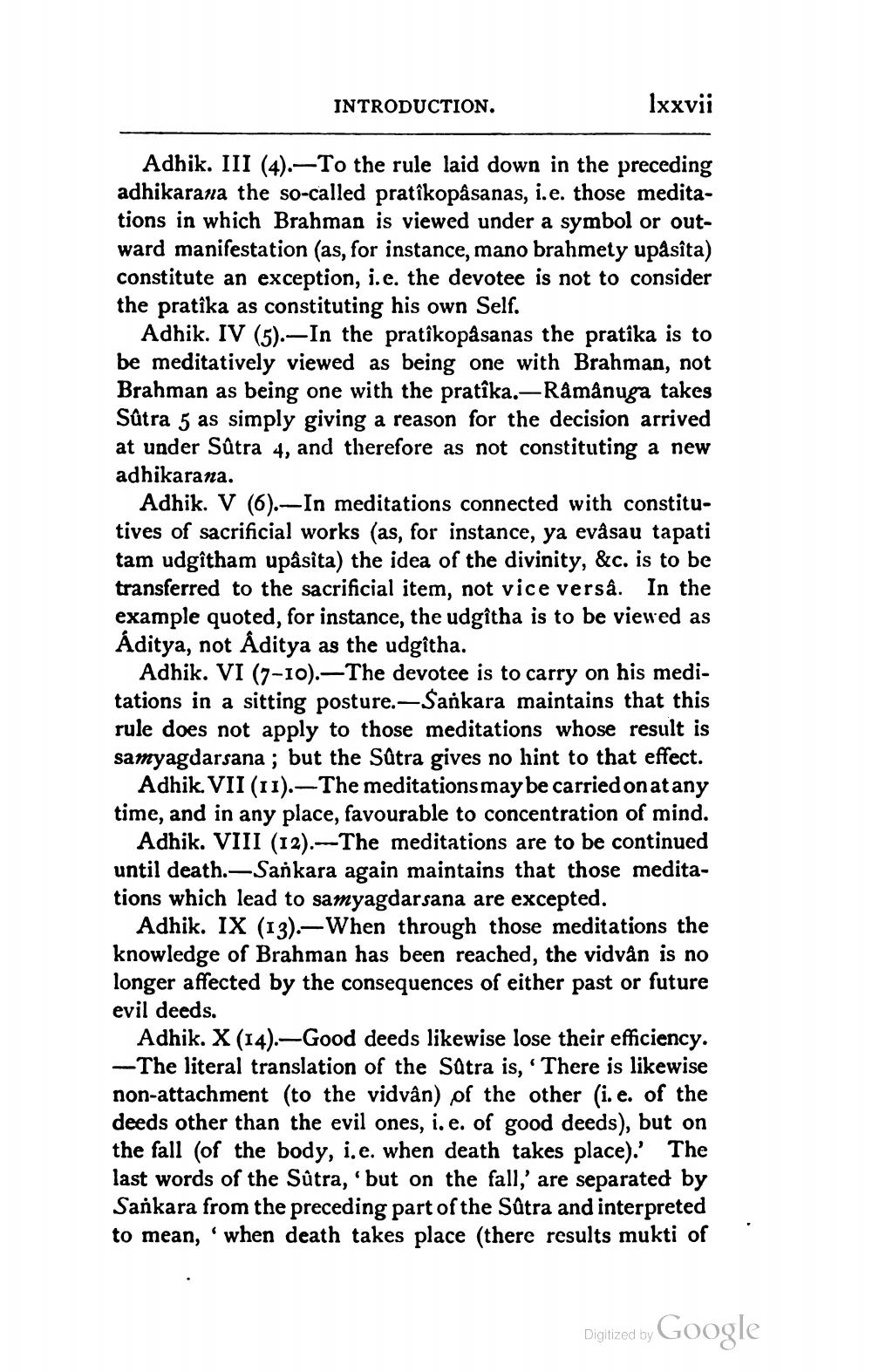________________
INTRODUCTION.
Ixxvii
Adhik. III (4).—To the rule laid down in the preceding adhikarana the so-called pratîkopâsanas, i.e. those meditations in which Brahman is viewed under a symbol or outward manifestation (as, for instance, mano brahmety upăsîta) constitute an exception, i.e. the devotee is not to consider the pratîka as constituting his own Self.
Adhik. IV (5).- In the pratîkopasanas the pratîka is to be meditatively viewed as being one with Brahman, not Brahman as being one with the pratîka.—Råmânuga takes Sutra 5 as simply giving a reason for the decision arrived at under Sûtra 4, and therefore as not constituting a new adhikarana.
Adhik. V (6).--In meditations connected with constitutives of sacrificial works (as, for instance, ya evåsau tapati tam udgîtham upasita) the idea of the divinity, &c. is to be transferred to the sacrificial item, not vice versâ. In the example quoted, for instance, the udgîtha is to be viewed as Aditya, not Aditya as the udgîtha.
Adhik. VI (7-10).—The devotee is to carry on his meditations in a sitting posture.—Sankara maintains that this rule does not apply to those meditations whose result is samyagdarsana ; but the Sätra gives no hint to that effect.
Adhik. VII (11).-The meditations may be carriedon at any time, and in any place, favourable to concentration of mind.
Adhik. VIII (12).---The meditations are to be continued until death.—Sankara again maintains that those meditations which lead to samyagdarsana are excepted.
Adhik. IX (13).—When through those meditations the knowledge of Brahman has been reached, the vidvån is no longer affected by the consequences of either past or future evil deeds.
Adhik. X (14).—Good deeds likewise lose their efficiency. -The literal translation of the Satra is, 'There is likewise non-attachment (to the vidvân) of the other (i. e. of the deeds other than the evil ones, i.e. of good deeds), but on the fall (of the body, i.e. when death takes place).' The last words of the Sûtra, 'but on the fall,' are separated by Sankara from the preceding part of the Satra and interpreted to mean, when death takes place (there results mukti of
Digitized by Google




